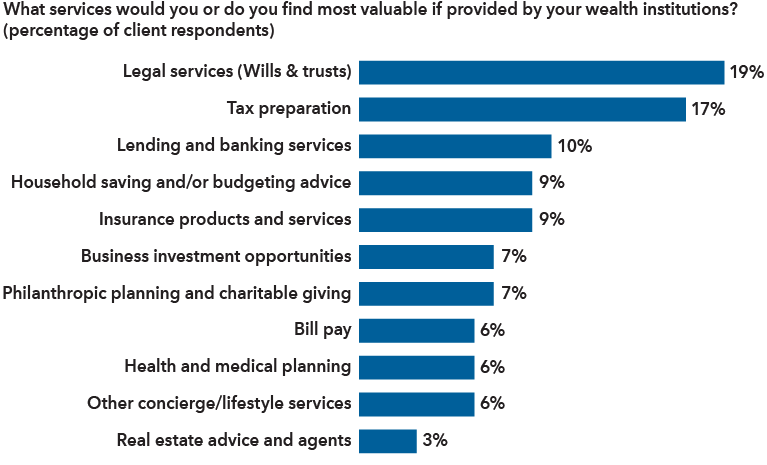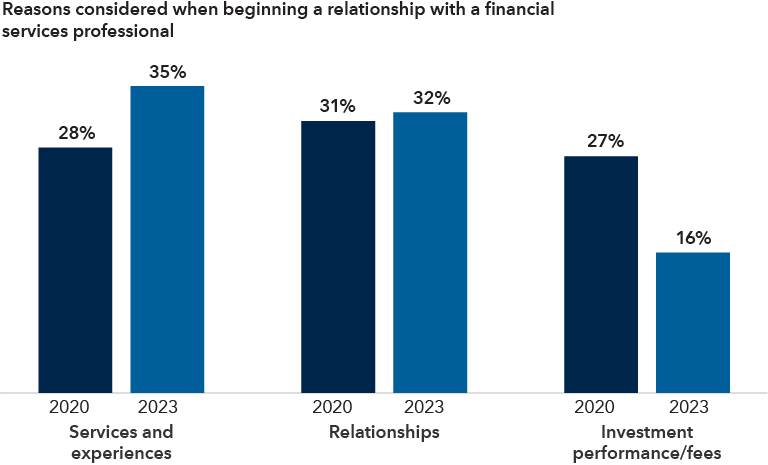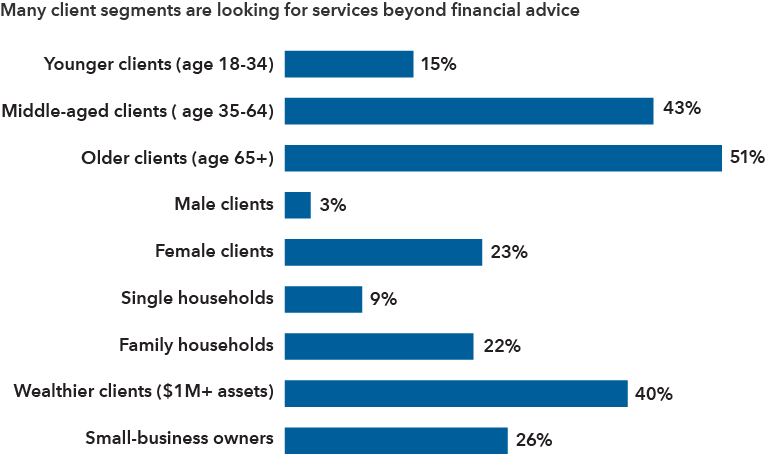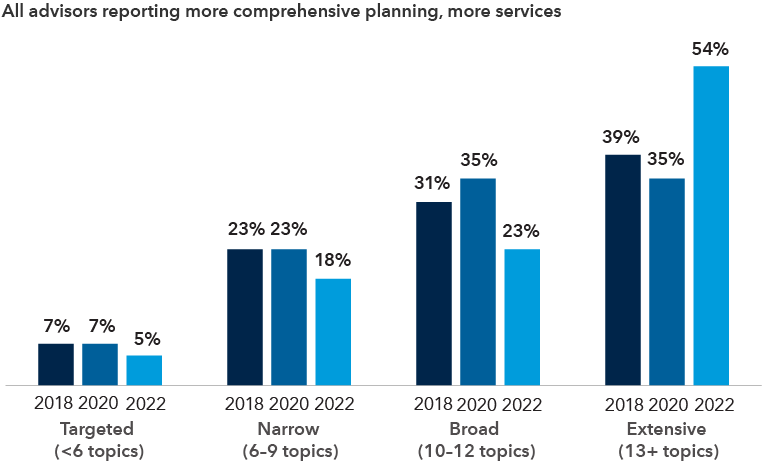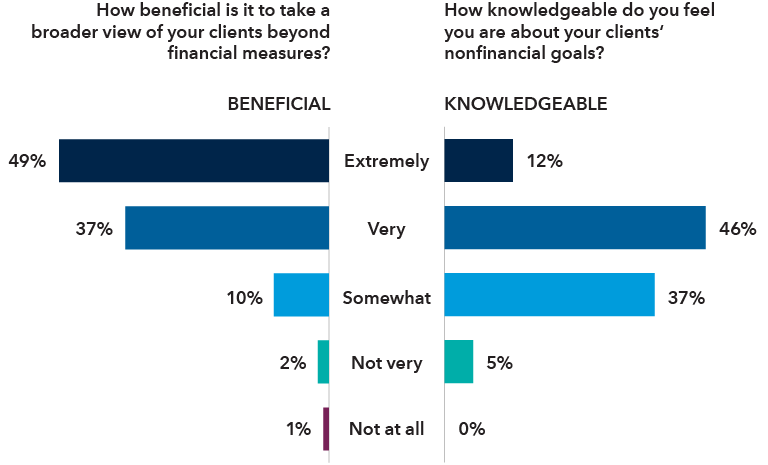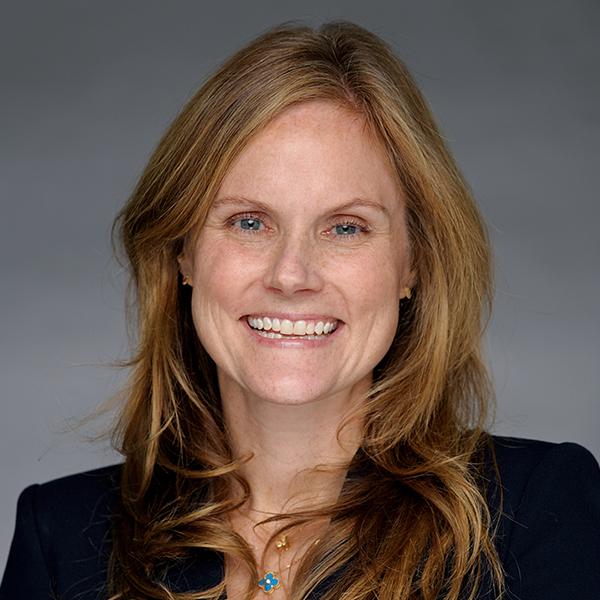If you think your job as a financial advisor is simply helping investors accumulate wealth through investing, it may be time to reconsider your assumptions. Today’s clients have different expectations. Yes, investments are important. But it’s also essential these days to be the steward of a client’s hopes and dreams — to help them identify their financial goals (beyond retirement at a certain age) and provide ongoing planning and guidance to help reach those goals. This is goals-based advice, and it’s what your clients expect.
Greater client demand is only one reason you should consider offering goals-based advice to your clients. Planning around goals can also help you deepen engagement and loyalty with clients and their families, lead to referrals, and ultimately help you save time. Here are nine reasons why goals-based planning can be an engine of growth — and productivity — for your business.
- Developing a specialty around your clients
- Planning for a lifetime of goals offers investment opportunities
- Demonstrating wins beyond the investment portfolio
- Retaining generational assets
- Attracting HNW assets to your business
- Helping clients may lead to new clients
- Expanding your centers of influence
- Staying competitive with industry peers
- Tying goals to investments


